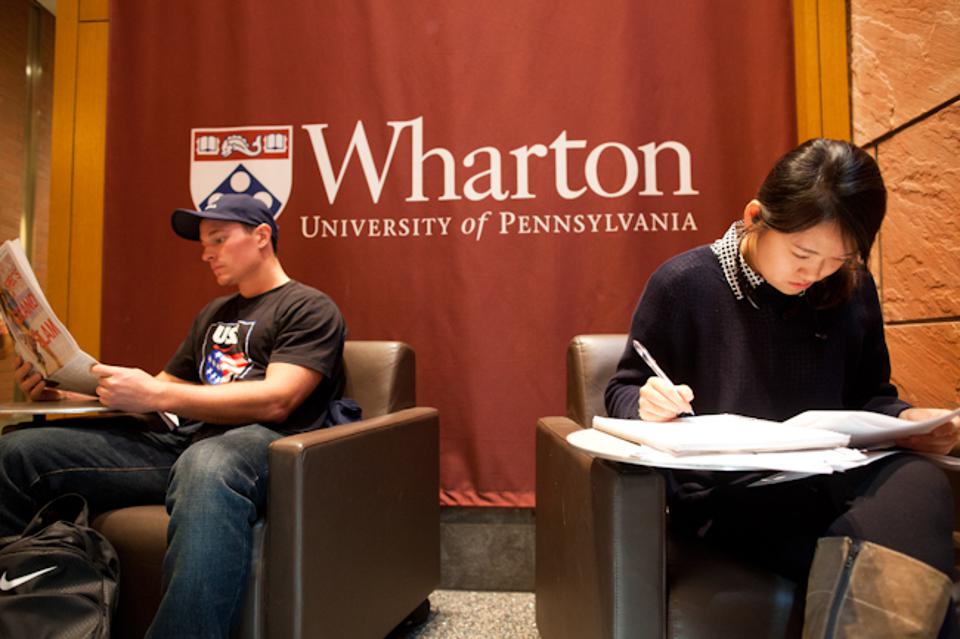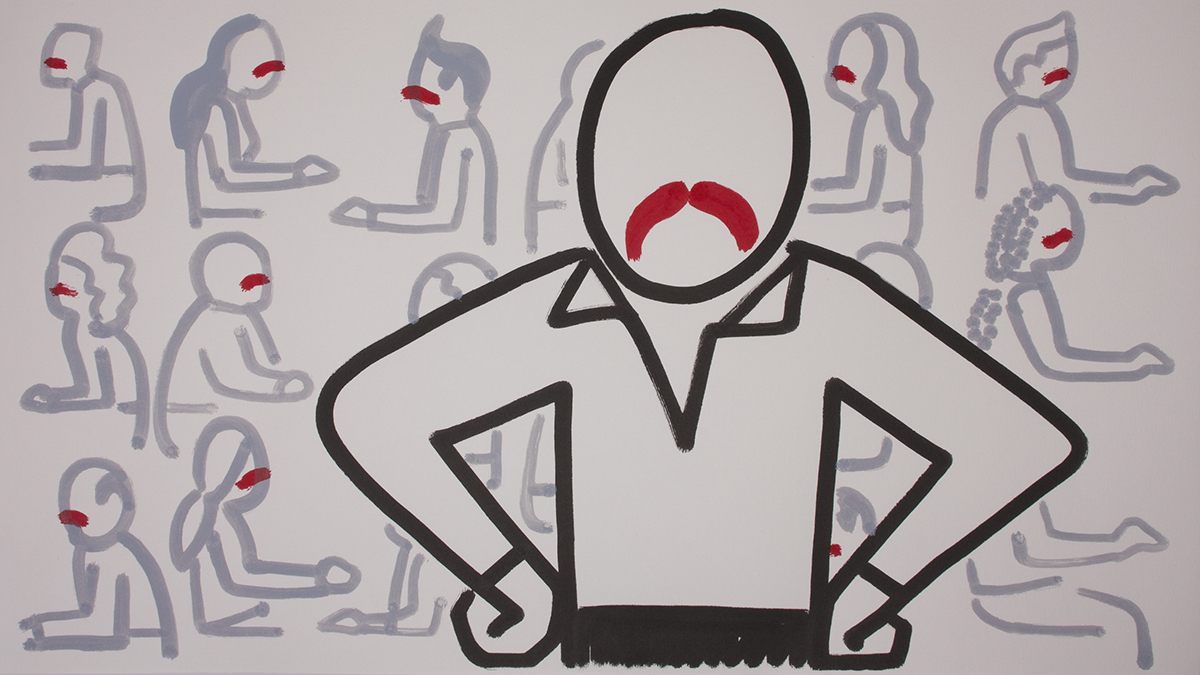Graduating M.B.A. students this year have had no trouble landing very good jobs. In most cases, starting pay has hit record levels and placement rates for schools are at or near records as well.
Yet, for the second consecutive year, even the highest ranked business schools in the U.S. are beginning to report significant declines in M.B.A. applications and the worse is yet to come, with many M.B.A. programs experiencing double-digit declines. Last year, the top ten business schools combined saw a drop of about 3,400 M.B.A. applicants, a 5.9% falloff to 53,907 candidates versus 57,311 a year earlier (see Acceptance Rates At The Top 50 Business Schools). The University of Michigan Ross School of Business experienced the worst drop, an 8.5% decline from 3,485 to 3,188 apps. Harvard fell 4.5%, UC-Berkeley Haas 7.5%, Wharton 6.7%, Stanford 4.6%, and Booth 8.2%.
"For the second consecutive year, the top ten schools all saw significant declines in applications," says William Boulding, dean of Duke University's Fuqua School of Business. "I have been hearing that some schools in the top ten are in double-digit territory so I think it is going to be worse than last year when all is said and done."
While there are a precious few exceptions, the early reports on 2018-2019 applications are bleak (see Apps To Major MBA Programs Plunge Again). At Duke Fuqua, full-time applications have fallen by 14.6%; at Yale's School of Management, they are down by 15.6%, while applications for Dartmouth College's Tuck School of Business have plunged 22.5%. Amid the overall downturn, Chicago Booth has bucked the trend, with applications rising by 3.4%—not enough to offset the previous year's 8.2% drop.
Some other highly prominent business schools are reporting lesser declines but the trend of young professionals showing less interest in an MBA is certain. The University of Pennsylvania's Wharton School just announced that applicants for its fall 2019 intake numbered 5,905, down 5.4% from 2018 and 11.8% from the school’s all-time high of 6,692 in 2017. It was the first time in at least eight years that apps dipped below 6,000 at Wharton, and it corresponded with the lowest international student intake — 30% — in at least that span.
NYU's Stern School of Business applications for its latest incoming class declined by more than 5% to 3,518 from 3,718 the prior year (see Average GMATs Up Five Points At Stern). Along with the previous year’s 3.7% drop in apps, the fall pushed the school’s acceptance rate to 26%, a three percentage point increase from 23% a year earlier. It also had an impact on the school’s entering class size of 359, down slightly from the 370 enrolled the previous year.
"The M.B.A. market is in dire straits right now," concedes Andrew Ainslie, dean of the University of Rochester's Simon School of Business. "The joke among deans is that 'flat is the new up.' If we can just hold our numbers, that is an incredible achievement." Ainslie says that when he meets with fellow deans, "half of our discussion is, 'What are you doing about your M.B.A. program?'"
Ainslie recently participated in an accreditation review at a leading business school and was shocked to find that its full-time M.B.A. program now gets only three applicants for every enrolled student. "Most of us feel we need to make three offers to get one student" says Ainslie. "So once you get there that means you are making offers to just about everyone. And this is at a school that is an internationally known brand."
Ainslie predicts that 10% to 20% of the top 100 M.B.A. programs in the U.S. will likely close in the next few years, with even greater fallout among second- and third-tier schools. Just three months ago, University of Illinois’ Gies College of Business became the latest school to announce that it is getting out of the full-time, on-campus M.B.A. market.
Simon saw its application volume remain stable this past year, largely because last year it become the first U.S. business school to gain full STEM designation for its full-time M.B.A. program. The change allows international students to apply for an additional 24 months optional practical training (OPT), which helps to bridge the gap between a student visa and a work visa. "We thought we would be in an incredible position with STEM. Given the news I’m hearing from everyone else, I am very happy being flat," sighs Ainslie.
Deans attribute the decline to a confluence of factors that include a strong U.S. economy, which is keeping more people in their jobs, as well as uncertainly over work visas by international students who also have been scared off of coming to the U.S. due to anti-immigration rhetoric. Also playing a role is the rising cost of the degree and cannibalization of the full-time M.B.A. market by the success of undergraduate business degrees, online M.B.A. programs, and specialized master's programs in such business disciplines as finance, accounting, analytics, marketing and supply chain management.
M.B.A. application volume, of course, goes up and down in different economic cycles. Typically, recessions bring a rebound as career opportunities diminish and more professionals seek to ride out a downturn in graduate school. In fact, says Ainslie, he hears fellow deans also joke that 'All we need is a nice little recession.' We are about the only people in the world who like a recession," he says. "We think it will still be good enough for us."
But when the next recession comes, he expects only a temporary and more mild bounce back in applications than history would suggest. Ted Snyder, who just left the deanship of Yale University's School of Management, agrees with him, citing the high cost of the M.B.A. degree as a reason why a recession won't lead to double-digit jumps in application volume.
“Having followed along with annual increases in tuition rates at two percent above inflation for more than 25 years,” adds Snyder, “many schools have found themselves in a tuition trap in which they cannot find a market for their programs. I think the number one thing (holding back a rebound) is the high price so I don’t see how a recession is going to have a great effect. Schools have to stop raising the price.”
It's not all bad news, of course. "The positive side of the news is that this is causing us to do some really interesting new product development," adds Ainslie. "The online market is really maturing and there are some excellent offerings out there. Master’s programs in business are slowly moving from a product solely for international students to domestic students. We are seeing the demise of the M.B.A. but we are still getting a lot of students in different degree programs."
See the original blog -
https://www.forbes.com/sites/poetsandquants/2019/08/20/its-official-the-mba-degree-is-in-crisis/?fbclid=IwAR0_wONvWO7rZnPteCvgxOUcRLASfTlQYdEQJoV8bZpwIAK1jcQUS1Be52U&sh=4e9d3cd052df



